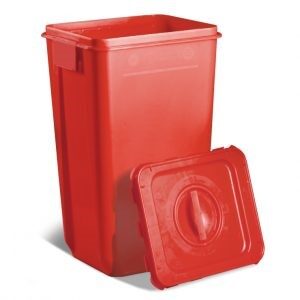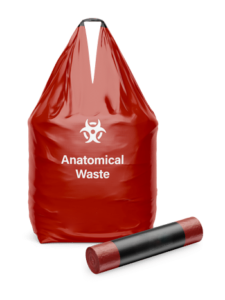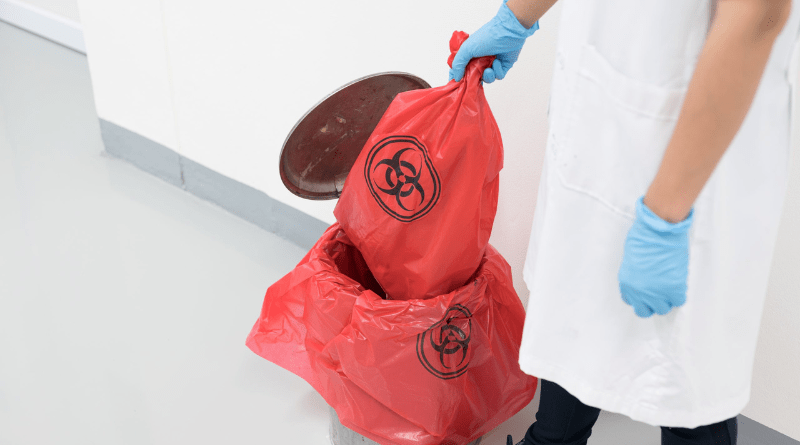The healthcare industry produces a lot of clinical waste, which needs to be managed and disposed of in a safe and compliant manner. But what are the key performance indicators (KPIs) that you should be tracking to ensure your clinical waste disposal management system is effective?
In this blog post, we will explore the four main disposal of clinical waste KPIs that you should track to ensure your clinical waste disposal management system is up to par. From total waste generated to treatment costs and more, read on to learn more about what goes into measuring the success of your clinical waste disposal program.
Clinical Waste KPIs
There are a few key performance indicators (KPIs) that are important to consider when managing clinical waste disposal.
- The first is the percentage of clinical waste disposal that is diverted from landfills. This is an important metric to track because it shows how well your facility is doing at recycling and repurposing clinical waste.
- The second KPI is the cost per ton of clinical waste disposed. This metric can help you gauge how efficient your disposal methods are and whether or not you could be saving money by making changes.
- The third KPI is the volume of clinical waste generated per patient day. This metric can help you identify trends in waste generation and identify opportunities for reduction.
Monitoring these KPIs can help you ensure that your facility is disposing of clinical waste in a safe, effective, and economical manner.
How to Measure Clinical Waste KPIs
There are a few key performance indicators (KPIs) to measure when it comes to clinical waste disposal management. Here are some of the most significant ones:
1. Compliance with Regulations
This is perhaps the most important KPI as it directly impacts the safety of both patients and staff. Make sure that your clinical waste disposal management system is compliant with all relevant regulations.
2. Waste Volume
Another important KPI is the volume of clinical waste produce. This will give you an indication of how effective your waste management system is and whether or not changes need to be.
3. Waste Segregation
An effective sharps waste disposal system will ensure that waste is properly segregate. This means that hazardous and non-hazardous waste is separate, which minimises the risk of contamination.
4. Cost
Clinical waste disposal can be expensive, so it’s important to track costs carefully. This will help you to identify any areas where savings can be.
5. Patient Satisfaction
Finally, it’s important to measure patient satisfaction with the clinical waste disposal system. If patients are unhappy with the way that their waste is being manage, it could impact negatively on their care experience.

Different Software For Efficiency in Clinical Waste Management
There are many software options available to assist with dental waste disposal. Some are more comprehensive than others, but all can help to increase efficiency and compliance with regulations.
One popular option is EHRis, which is a web-based clinical waste management system. It includes features such as online tracking of waste disposal, alerts for when waste needs to be dispose of, and reporting tools. This software can help to streamline the clinical waste management process and make it easier to track and report on progress.
Another helpful tool is the Hazardous Waste Tracking System (HWTS). This software tracks hazardous waste from generation through disposal. It includes features such as manifests, barcoding, and real-time tracking. This tool can help ensure that all hazardous waste is properly track and dispose of in accordance with regulations.
Finally, the Clinical Waste Audit Toolkit (CWAT) is a web-based toolkit that helps facilities audit their clinical waste management practices.
It includes checklists, templates, and guidance on how to conduct an effective audit. This tool can help identify areas where improvements can be to the clinical waste management process.
Why Medical Management Company Can Help Your Bottom Line
If you are a healthcare facility owner or administrator, you know that managing clinical waste is a significant challenge.
Not only do you have to comply with strict regulations, but you also have to find ways to dispose of the waste safely and efficiently. One way to improve your clinical waste management is to partner with a medical management company.
Another way a medical management company can help your bottom line is by providing training and education for your staff. They can ensure that your staff is up-to-date on the latest regulations and know how to properly handle and dispose of clinical waste.
This can help reduce the risk of fines or other penalties for non-compliance. Additionally, it can help improve the overall safety of your facility by reducing the risk of exposure to hazardous materials.
If you are looking for ways to improve your clinical waste management and save money, partnering with a medical management company is a great option. They can provide many benefits that will help your bottom line and make your facility run more smoothly.
What Are Some Challenges In Waste Development?
In the past, waste was simply consider to be anything that was over from human or animal activity. This includes everything from food scraps and manure to industrial effluent and mining tailings.
However, as we have become more aware of the impact of our activities on the environment, the definition of waste has become much more complex. Today, waste is define as any material that is discard without being to any further use.
This includes both solid and liquid wastes, as well as gaseous emissions that are release into the atmosphere. Waste can be generate by human activities, but it can also come from natural sources such as power plants and volcanoes.
The management of waste has become a major challenge for society. As populations have grown and living standards have improved, the amount of waste we generate has increased dramatically.
At the same time, our ability to dispose of waste safely has not kept pace with this growth. As a result, many communities are struggling to cope with mounting levels of waste.
There are a number of challenges that need to be address in order to develop sustainable management practices for waste. These include:
- Reducing the amount of waste we generate in the first place
- Finding safe and effective ways to dispose of the waste that is generate
- Recovering valuable materials from waste products and recycling them back into the economy
- Reducing emissions from waste management activities
Four Reasons Why Clinical Waste Disposal Are Important
- Waste management is important to protect public health.
- Improper waste disposal can lead to environmental pollution.
- It is important to recycle and reuse materials to conserve resources.
- Proper waste management can help save money.
Top Tips For Clinical Waste Disposal In The Home Environment
As the amount of waste produce in the home environment increases, it is important to ensure that clinical waste is dispose of correctly. Here are some top tips for clinical waste disposal in the home environment:
- All clinical waste should be place in a securely tie red bag before being place in a suitable container for collection.
- Clinical waste containers should be clearly label with the words ‘Clinical Waste’.
- Never put hot ash or liquids into clinical waste containers.
- Never overfill clinical waste containers – if they are full, contact your local authority for advice on alternative arrangements.
This can lead to a host of health problems, including diarrhoea, cholera, and dysentery. Proper waste management helps to prevent these problems by ensuring that garbage is dispose of properly.
Developing countries have a lot to gain from implementing sustainable waste management practices. Not only does it help to protect the environment and public health, but it can also create jobs.

Conclusion
There are many factors to consider when choosing the right medical sharps disposal KPIs for your clinical waste disposal management system. The most important thing is to select KPIs that will help you measure and improve the performance of your system.
Some of the most important KPIs for clinical waste disposal management include:
-Waste segregation efficiency -Recycling rates -Treatment turnaround time -Hospital infection rates By tracking these KPIs, you can ensure that your clinical waste disposal management system is running smoothly and efficiently.

